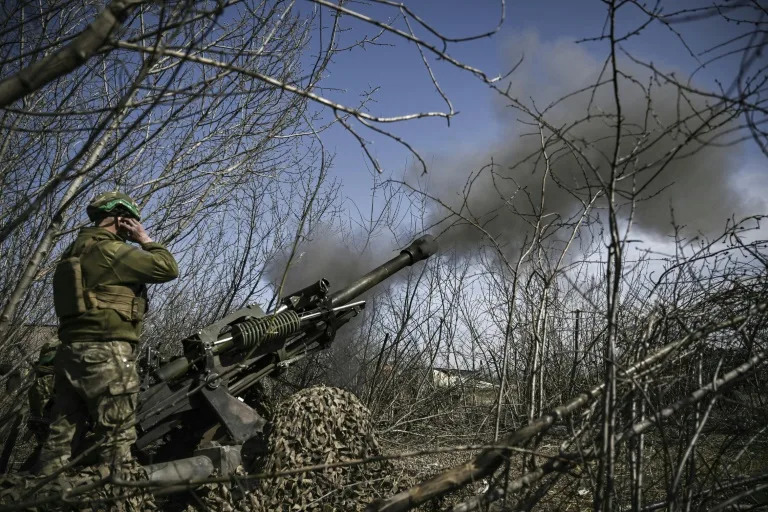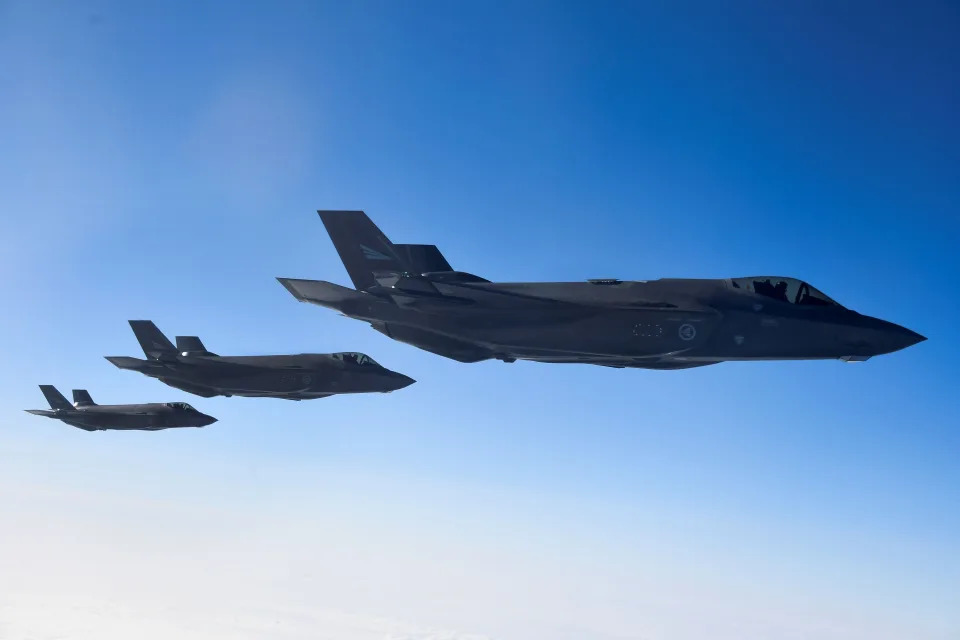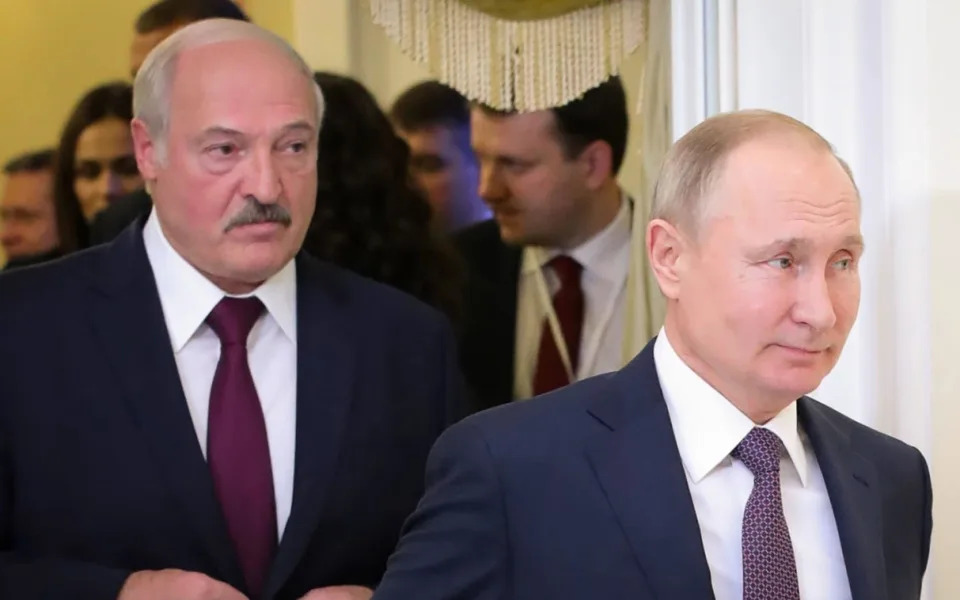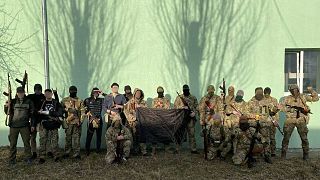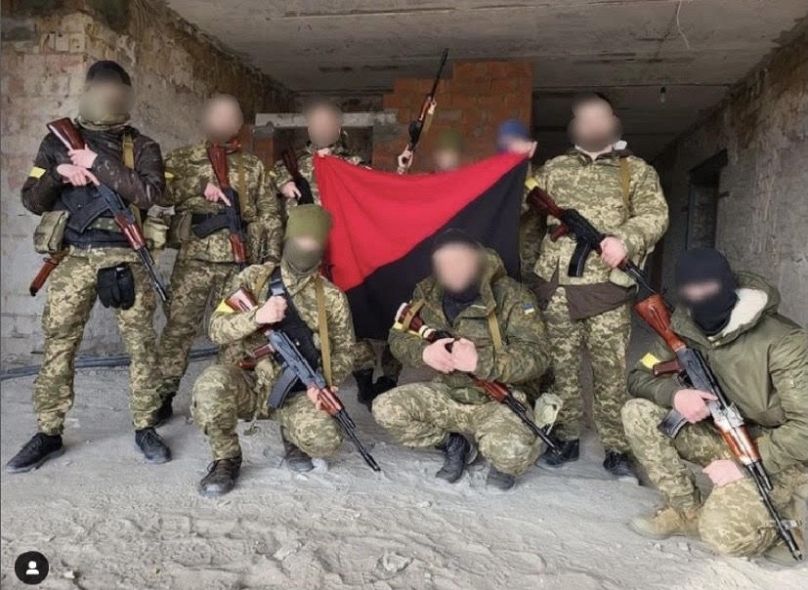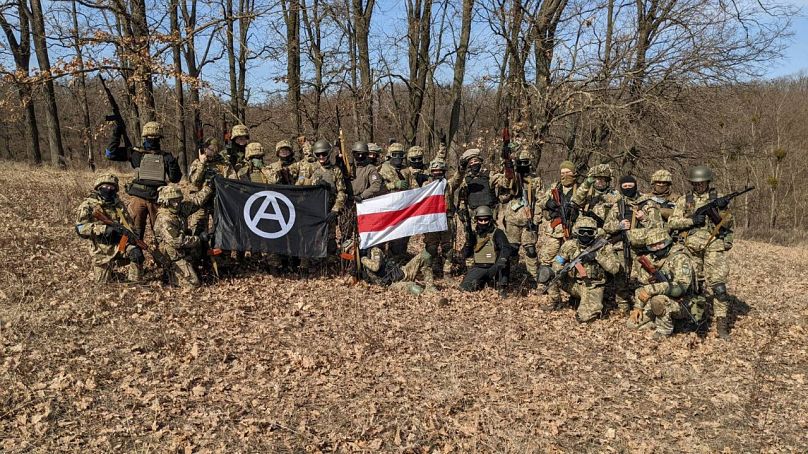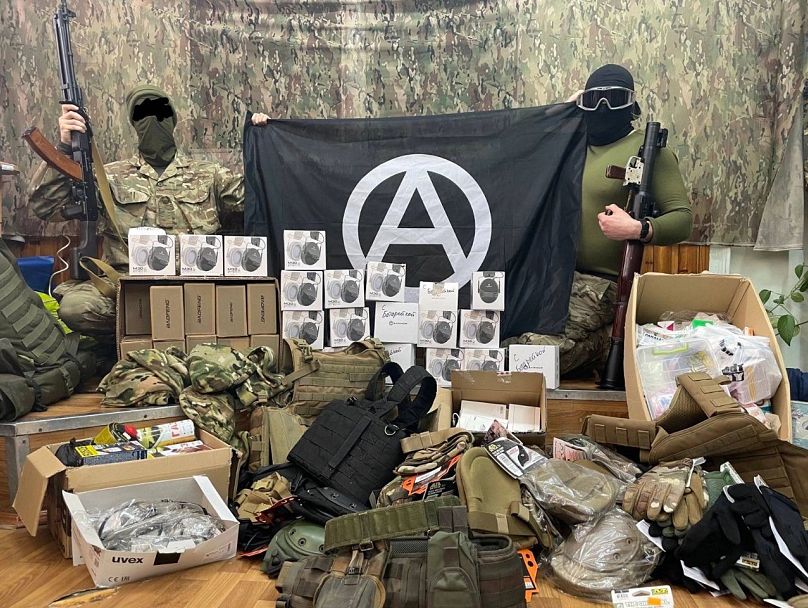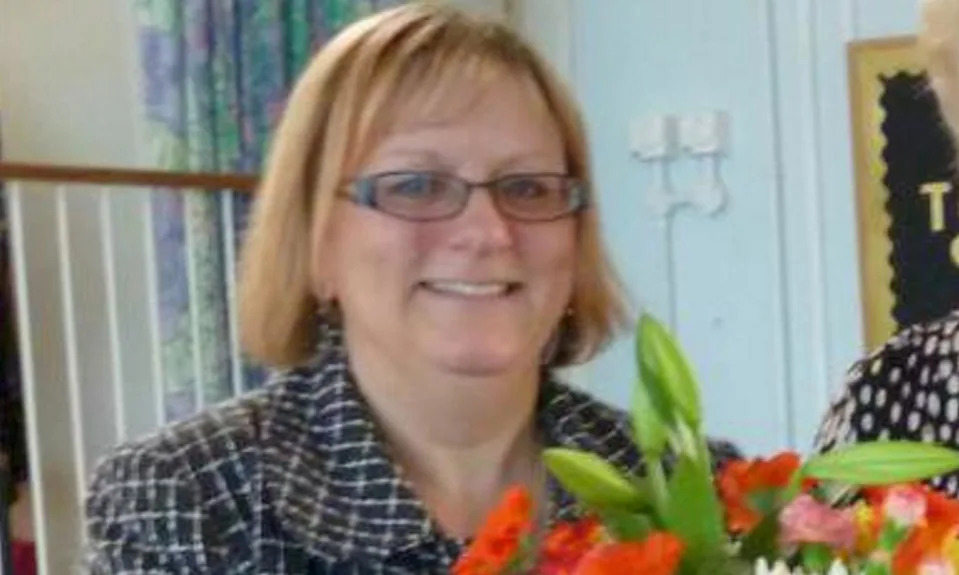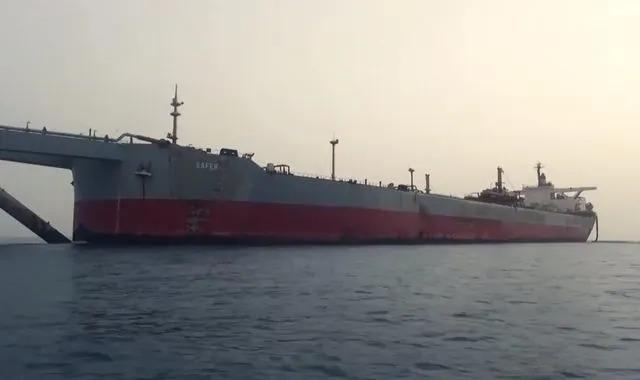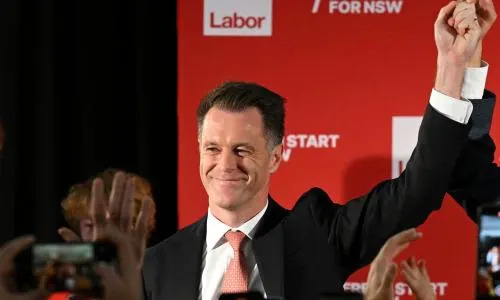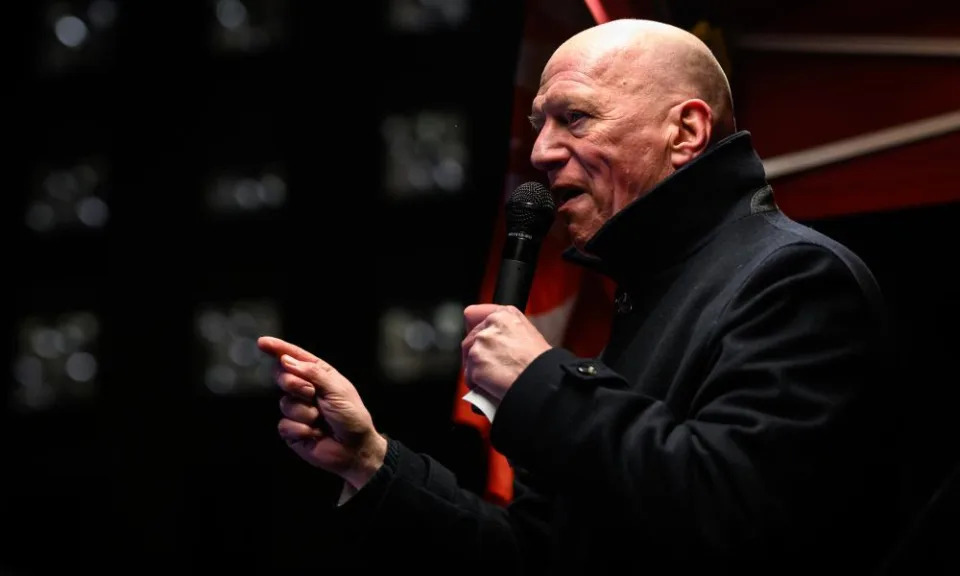Top Tory MPs ask for £10,000 a day to work for fake Korean company
Jon Ungoed-Thomas
Sat, 25 March 2023
In this article:
Kwasi Kwarteng
British politician (born 1975)
Matt Hancock
British politician (born 1978)
Graham Brady
British Conservative politician
The former chancellor, Kwasi Kwarteng, and former health secretary, Matt Hancock, agreed to work for £10,000 a day to further the interests of a fake South Korean firm after apparently being duped by the campaign group Led by Donkeys.
Kwarteng attended a preliminary meeting at his parliamentary office and agreed in principle to be paid the daily rate after saying he did not require a “king’s ransom”. When Hancock was asked his daily rate, he responded: “It’s 10,000 sterling.”
Sir Graham Brady, the chair of the 1922 Committee, also attended an online meeting for the fake foreign firm from his parliamentary office. When asked about the limits on arranging meetings, he made clear he could not advocate on behalf of the interest but said he may be able to advise the firm on who to approach in government. He said a rate of about £6,000 a day “feels about right” and any payments would be on a public register.
A fourth MP, former minister Stephen Hammond, who had been approached, said this weekend he considered he had been the victim of a “scam”. He said he thought he was engaged in a preliminary discussion with a company but “it turns out this company was fake, with a fake website”. Hancock’s spokesperson said he had acted “entirely properly” and criticised what he described as the “illegal publication of a private conversation”.
The senior politicians have complied with all relevant rules and referred to their obligation to their constituents during preliminary meetings. The Led by Donkeys project, conducted with investigative reporter Antony Barnett, comes at a time when people face a cost of living crisis. The campaign group released a report on its investigation on Twitter on Saturday , with recorded undercover footage.
While they are not prohibited from such meetings and no arrangements were finalised, there is currently intense scrutiny of politicians’ outside earnings. Labour has said it will ban most second jobs for MPs if it wins power.
The purported firm that approached the politicians did not exist and had a rudimentary foreign website with fake testimonials. MPs have been warned by the Home Office to be on their guard against the “threat of foreign interference”, and the group’s investigation demonstrated the ease with which they seemed able to gain access to the MPs .
Led by Donkeys is understood to have approached 20 MPs from the Conservative party, Labour and Liberal Democrats after examining the outside earnings of MPs on the parliamentary register of interests. An email sent by the fake investment and consulting firm, Hanseong Consulting, said it wanted individuals for an international advisory board to “help our clients navigate the shifting political, regulatory and legislative frameworks” in the UK and Europe.
It said advisers would be required to attend six board meetings a year, with a “very attractive” remuneration package and “generous expenses” for international travel. Five MPs agreed to be interviewed on Zoom, with one who was clearly suspicious of the firm’s credentials terminating the call. The MPs were interviewed by a woman purporting to be a senior executive, with a backdrop of the skyline of Seoul, the South Korean capital, at her office window.
In February, Kwarteng attended an online meeting of about 40 minutes, informing the interviewer that he was “sitting in my office in parliament”. Kwarteng was sacked as chancellor last October by the then prime minister Liz Truss after his mini-budget precipitated a financial crisis.
During a discussion about what the renuneration might be, Kwarteng said he would not do anything for less than £10,000 a month. He said he would need to be compensated “particularly if I’m going to Korea”. When he was told the firm was looking at a rate of £8,000 to £12,000 a day, he responded that they were numbers he could work with. It was agreed that if he went to Korea he could invoice at £10,000 a day.
Discussing his credentials, he said he had significant experience from his roles as a former business secretary and “briefly as chancellor”. The prospect of Kwarteng citing his political track record for what appeared a lucrative role may anger homeowners who saw mortgage repayments rise because of his disastrous tenure at the Treasury. He discussed Brexit, the energy industry and Boris Johnson, with whom he said might be able to arrange a meeting.
In early March, Hancock agreed to an online meeting for the advisory role. The Telegraph had that week published his leaked cache of more than 100,000 WhatsApp messages, but he seemed relaxed for the meeting with the fake foreign firm. He said it had been “quite a busy week” but that March was the “start of hope”.
“We were wondering, do you have a daily rate at the moment?” he was asked by the interviewer, posing as a senior business executive. “I do, yes,” Hancock replied. “It’s 10,000 sterling.”
The footage showing his rapid response to a question over fees is likely to spark fresh controversy over concerns MPs may be bolstering their finances in ways that may be counter to the interest of the constituents they serve. Hancock is an independent MP after he had the whip suspended for taking part in I’m a Celebrity, for which he was paid £320,000, with Rishi Sunak’s spokesperson saying at the time that “MPs should be working hard for their constituents”.
Hancock said in the meeting that he followed the “spirit and letter” of parliamentary rules, and would also require additional approval for the role because he had been a minister, but outside interests were permitted. He said he was mindful of the responsibility to serve his constituents.
Brady, one of parliament’s most senior backbenchers, was interviewed remotely in his parliamentary office in mid-February. He said he could attend international meetings and may have more flexibility because of his degree of seniority in the party.
Brady said £60,000-a-year may be a reasonable fee, and it was agreed a rate of £500 an hour and £6,000 a day would be appropriate, but open to negotiation. He said he was always careful to follow the rules, but said he might be able to identify people in government to approach and “how to do it in the most appropriate way”.
Hammond, the Wimbledon MP and a former transport and health minister, also agreed to a meeting, saying he had a specific interest in South Korea because he had a number of nationals living in his constituency. He told the company he already had roles with two other firms, both of which are disclosed in the parliamentary register of interests.
Labour called the developments “shameful”. Thangam Debbonaire, the shadow leader of the House of Commons, said: “Being an MP is a full-time job. Tory MPs should not be using their taxpayer-funded offices to line their own pockets. This is shameful at any time but particularly during the cost of living crisis.
“Rishi Sunak promised a government of integrity at every level, yet his own MPs are seemingly breaching the rules. He must act and remove the whip from those involved.
“Labour will put an end to MPs raking in thousands of pounds on the side and act to restore trust in politics.”
MPs have faced repeated controversies over outside earnings. A new code of conduct for MPs was introduced on 1 March, and for the first time it prohibits members providing paid parliamentary advice to an outside employer.
Labour’s Commission on the Future of the UK, which was published last December and chaired by former prime minister Gordon Brown, called for a general ban on second jobs for MPs.

Led By Donkeys activists, from left, Ben Stewart, Oliver Knowles, Will Rose and James Sadri in a north London pub in 2019. Photograph: Andy Hall/The Observer
Led by Donkeys was established in 2018 as a campaign in response to Brexit. Its high-profile projects and satirical stunts have since included a spoof episode of the BBC show Line of Duty with Boris Johnson being interrogated by the anti-corruption AC-12 unit and painting the colours of the Ukrainian flag outside the Russian embassy in London.
A spokesperson for Hancock said: “The accusation appears to be that Matt acted entirely properly and within the rules, which had just been unanimously adopted by parliament. It’s absurd to bring Mr Hancock into this story through the illegal publication of a private conversation. All the video shows is Matt acting completely properly.”
Brady said he was leaving parliament at the next election and had received a number of approaches concerning future opportunities, including the purported South Korean firm. He said: “I made it clear that any arrangement would have to be completely transparent and that, whilst a member of parliament, I would only act within the terms of the code of conduct. I also made it clear that while I could be flexible in attending international meetings in person, this would be subject to some important votes or commitments in Westminster.”
He said that, with regard to advice on approaching figures in government, he made clear he would always follow the rules. He said he was interviewed prior to a stricter code of conduct being introduced on 1 March.
He said he did “some internet research” on the firm but, given it was an exploratory conversation, considered it reasonable to proceed. He said he did not consider he was “doing business” in his parliamentary office and it was not a bad thing for MPs to have outside interests, providing they followed the rules.
Hammond said: “This was nothing other than what I thought to be a preliminary discussion with a South Korean company – a country that is close to my heart as I have a substantial Korean community in my constituency, and which is an important ally to the UK. It turns out this company was fake, with a fake website. The remuneration amount was suggested by the actor purporting to be an employee of the company, not by me. Scamming is an unpleasant activity undertaken with malicious intent. I believe it is a great honour to be an MP. I have always put my constituents first and will always try to act in their best interests.”
Kwarteng did not respond to a request for comment.
